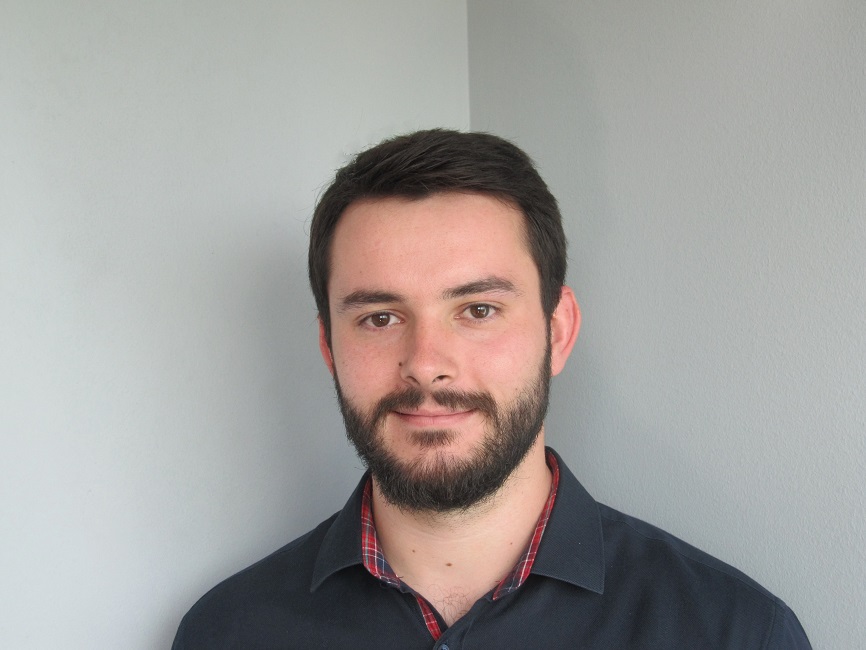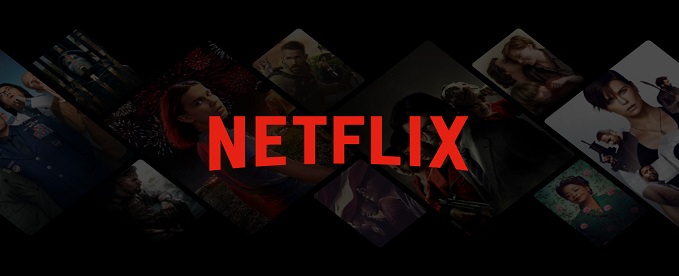Broadcasting
RCS: Empowering MNOs to Compete Against OTT Players in Lucrative A2P Messaging Space

By Filip Filković, Regional OP Manager, West Africa at Infobip
As Over-The-Top (OTT) platforms such as WhatsApp, Viber and Telegram continue to gain popularity, SMS messaging still has its purpose and works well for certain types of messaging as a Person-To Person (P2P) communication channel. But with the growing demand for an upgrade in SMS experiences to accommodate Rich Conversational Messaging (RCS) capabilities, branding, security and trust, RCS is gradually taking root, leaving Mobile Network Operators (MNOs) with few means to fight back in this segment. At the same time, OTT channels are also becoming dominant in the enterprise communication space, given their prevalence and rich media capabilities, as well as largescale P2P adoption.

Filip Filković
However, Rich Communication Services (RCS) may provide a solution for MNOs to compete with OTT players and claw back some of the revenue they have been missing out on in both the P2P and the lucrative Application-To-Person (A2P) messaging space. RCS is a rich media capable communication protocol that is an evolution of SMS as a native messaging channel, provided by Google in collaboration with MNOs.
With RCS, mobile operators are able to provide their subscribers, as well as enterprises, with a messaging system that has the capability of sharing and receiving content such as images or videos without the need to download a separate messaging app. With many enterprise-focused features such as chatbots or carousels (content slideshows), brands are able to provide a convenient customer engagement channel for various use cases, ranging from tech support to purchases, as part of the conversational commerce paradigm.
Engaging communication experience
Since its launch in 2018, it took a while for telcos to adopt RCS and for enterprises to embrace it as a means of creating a more engaging customer communication experience. However, it is safe to say that RCS is now an established business communication channel.
At the same time, while OTT messaging apps have become the norm in P2P communication, RCS’s rich media capabilities can provide a foothold for MNOs not only in the business communication space, but also in the P2P market where OTT players currently dominate. Therefore, RCS is fast becoming an important part of telcos’ enterprise digital portfolio.
With that said, RCS still lacks wide P2P acceptance, as it is far from being the top choice for P2P communication. Yet, promoting RCS as a channel for P2P communication can add to the efficiency of A2P campaigns by the mere fact that more people would be using the channel and are more likely to respond, further growing already robust engagement stats.
A good first step for MNOs would be to start using RCS as a communication channel for their subscribers, providing tech support, sending statements and invoices, responding to purchase enquiries and other use cases to familiarise users with the channel and its features, while also allowing them to get hands-on experience with it.
No installation needed
A distinct advantage for MNOs is that their customers do not need to install any additional apps, as the messaging app that is native to most Android platforms just needs to be enabled for RCS. The adoption of smartphones and greater internet penetration in recent years means that RCS is likely to gain greater traction among P2P users. This means that the sooner MNOs start using the channel to communicate with their subscribers, the sooner it is likely to see widespread adoption.
Establishing partnerships with Communications Platform as a Service (CPaaS) providers can go a long way to driving RCS adoption, as CPaaS providers have been at the forefront of bringing RCS to enterprises in conjunction with MNOs, and have a range of tools for crafting customer journeys and managing channels. As such, telcos can avoid the complexities of developing CPaaS-level tools and services by partnering with CPaaS players, and instead focus on their core strengths – that of building an RCS element into their networks.
The future of business messaging lies with RCS messaging – it is what consumers want, it is
what enterprises will need to provide, and will ultimately benefit from it as the engagement it offers is superior to that of any other digital channel.
Broadcasting
NCC Warns DJs: Playing Music Without License Could Lead to 5-Year Jail Term

Nigerian Copyright Commission (NCC) has warned disc jockeys (DJs) against publicly playing music without proper authorization or a valid license.

NAN reports that John Asein, NCC director-general, gave the warning in an advisory issued in Abuja.
He said the commission’s attention had been drawn to the growing practice of DJs playing music in public spaces without obtaining copyright licences from their approved collective management organisations (CMOs).
Asein said under sections 9 and 12 of the Copyright Act, 2022, only the owner of copyright in a musical work or sound recording has the exclusive right to reproduce, perform, or communicate it to the public.
The NCC threatened to prosecute defaulters in a case that could lead to a N1 million fine or a 5-year jail term upon conviction.
“Engaging in any of these acts without the owner’s authorisation constitutes an infringement under the Act,” he said.
“Such infringement may constitute a civil wrong or a criminal offence under section 44 (7), punishable upon conviction by a fine of not less than N1 million or imprisonment for a term of not less than five years or to both.”
Asein advised DJs to obtain the necessary licences and pay royalties to the approved CMO before performing music publicly.
The NCC director-general added that the commission will arrest and prosecute anyone found violating the law.
“For the avoidance of doubt, the approved CMO for musical works and sound recordings in Nigeria is the Musical Copyright Society, Nigeria (MCSN),” he said.
“The Commission is aware that the Disc Jockey’s Association of Nigeria (DJAN), as the umbrella body representing DJs in Nigeria, has entered into a Memorandum of Understanding with MCSN.
“Under the arrangement, DJAN is authorised to work with MCSN to facilitate the payment of royalties by DJs nationwide, based on the tariff that DJAN had negotiated with MCSN.”
Broadcasting
Netflix Hikes Subscription Fees Again in Nigeria over “Market Conditions”

Netflix has increased its subscription fees in Nigeria for the third time since 2024, with the Premium Plan rising by 21.43%, from ₦7,000 to ₦8,500 per month.

This marks the streaming platform’s first price adjustment in 2025.
Other subscription tiers have also been affected.
The Standard Plan now costs ₦6,500, up from ₦5,500—a hike of 18.18%.
The Basic Plan has increased from ₦3,500 to ₦4,000, while the Mobile Plan moved from ₦2,200 to ₦2,500, reflecting increases of 14.29% and 13.64% respectively.
The latest adjustment aligns with Netflix’s broader global pricing strategy, which the company has linked to its ongoing investment in content and platform development. In a previous communication to investors, Netflix stated, “As we invest in and improve Netflix, we’ll occasionally ask our members to pay a little extra to reflect those improvements. Which in turn helps drive the positive flywheel of additional investment to further improve and grow our service.”
While the company did not explicitly cite inflation in its most recent update, its website indicates that local economic factors influence its pricing structure.
“Price changes are made to respond to local market changes, such as changes to local taxes or inflation,” the statement read.
The move mirrors similar pricing shifts among other major digital and entertainment services in Nigeria.
Companies including Google, DSTV, GOtv, and Microsoft have also raised subscription rates, attributing their decisions to continued inflationary pressures and a weakening naira.
Broadcasting
NBC, Nigcomsat Launch Satellite Plan to Transform Broadcasting

National Broadcasting Commission (NBC) and Nigerian Communications Satellite Limited (NIGCOMSAT) have jointly introduced “The Big Picture’, a flagship initiative under Nigeria’s renewed Digital Switchover (DSO) project.

Under the project, Nigerian households will for the first time, gain access to high-quality digital broadcasts via affordable satellite dishes, hybrid devices, and internet-enabled set-top boxes.
Backed by President Bola Ahmed Tinubu and in line with his Renewed Hope Agenda, this strategic shift marks a significant step toward transforming Nigeria’s broadcasting landscape by leveraging the country’s sovereign satellite infrastructure.
At the heart of the initiative is NigComSat-1R, Nigeria’s only communications satellite in orbit, which will play a critical role in delivering Direct-to-Home (DTH) broadcasts across the entire Nigerian territory.
This satellite-first approach eliminates the traditional dependence on terrestrial transmission towers, accelerating the nationwide rollout of digital broadcasting by over 65%.
It also offers a scalable, cost-effective, and future-ready model for expanding digital access and promoting national storytelling.
Key figures, including: Charles Ebuebu, director-general, NBC; and Jane Nkechi Egerton-Idehen, managing director, Nigcomsat, have welcomed this forward-thinking strategy, emphasising its importance in maximising the use of national satellite assets and ensuring inclusive access to digital content.
An estimated 10 million homes equipped with DVB-S2-compatible televisions or decoders will have immediate access to free-to-air channels, while others will benefit from next-generation hybrid devices that combine satellite feeds with online streaming capabilities.
These new branded devices are designed with the country’s youth-dominated demographic in mind over 60% of the population is under the age of 25.
They will feature pre-installed apps, voice search functionality, parental controls, and seamless integration with NigComSat’s Electronic Programme Guide (EPG), offering an intuitive and engaging user experience.
In a data-driven upgrade to Nigeria’s broadcasting ecosystem, NBC is also partnering with global analytics firm GARB to introduce real-time audience measurement technology.
This will enable broadcasters, advertisers and content creators to analyse viewership trends across regions and devices, helping to tailor content more effectively and drive higher audience engagement. The introduction of this system is expected to boost advertising revenue by as much as 300% by 2026.
The success of “The Big Picture” will rely on robust collaboration between public and private stakeholders.
The Broadcasting Organisation of Nigeria (BON) and other content partners are expected to supply 60% of programming for the new 120-channel platform, using both original and repurposed content.
Meanwhile, local manufacturers will contribute by producing around 5 million compliant devices annually, a move projected to create over 20,000 jobs in assembly plants nationwide.

 Telecom2 days ago
Telecom2 days agoAirtel Recommits to Fraud Prevention after NCC’s N104m Fine for SIM Registration Breaches

 Telecom2 days ago
Telecom2 days agoMTN’s Female Leadership Surges to 41.4%, Doubles Industry Average

 Broadcasting2 days ago
Broadcasting2 days agoNCC Warns DJs: Playing Music Without License Could Lead to 5-Year Jail Term

 Telecom2 days ago
Telecom2 days agoTikTok Rolls Out Personalization Tools for Nigerian Users

 News2 days ago
News2 days agoIHS Nigeria Reaffirms Commitment to raising Nigeria’s Next Tech Giants from the Ilorin Innovation Hub

 General News2 days ago
General News2 days agoInterswitch, Bank of Sierra Leone Champion Financial Inclusion @ Sierra Leone Fintech Forum 2.0

 General News2 days ago
General News2 days agoNITDA Makes Case for Inclusive Tech for Special Needs

 E-Financial2 days ago
E-Financial2 days agoGambaryan, Binance Executive Leaves Company after 8-Month Detention in Nigeria




























